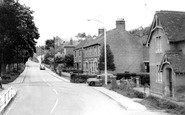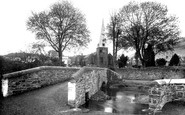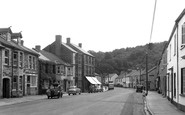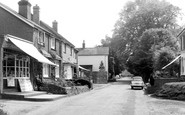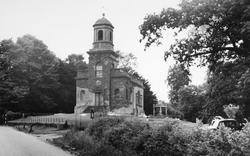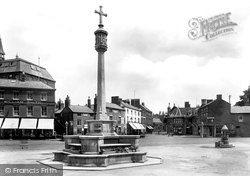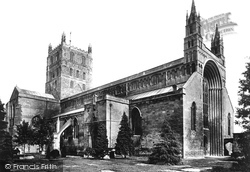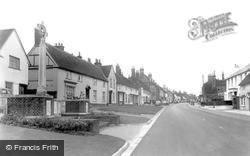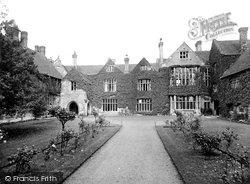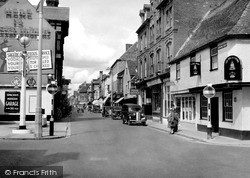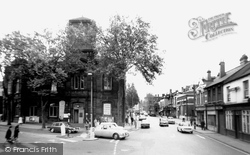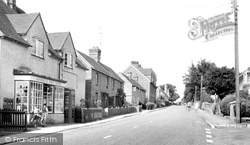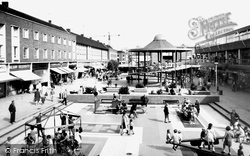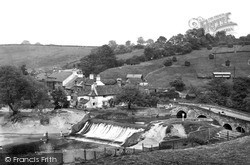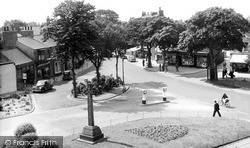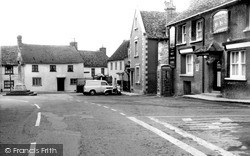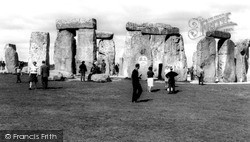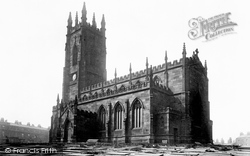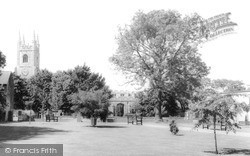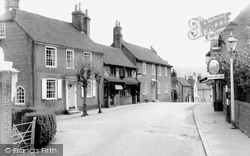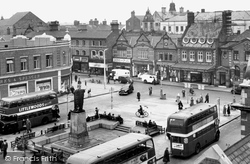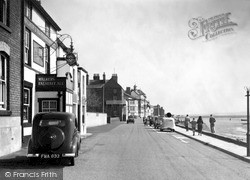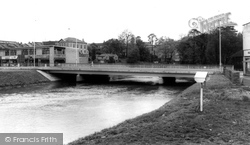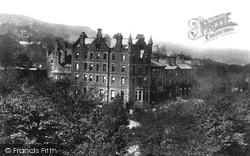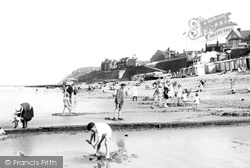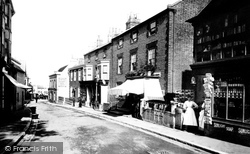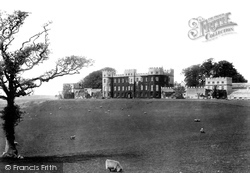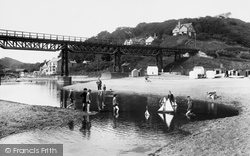Places
18 places found.
Those places high-lighted have photos. All locations may have maps, books and memories.
- Hythe, Kent
- Hythe, Hampshire
- Small Hythe, Kent
- Bablock Hythe, Oxfordshire
- Methwold Hythe, Norfolk
- Hythe, Somerset
- Hythe, Surrey
- Hythe End, Berkshire
- The Hythe, Essex
- Egham Hythe, Surrey
- West Hythe, Kent
- New Hythe, Kent
- Broad Street, Kent (near Hythe)
- Horn Street, Kent (near Hythe)
- Newbarn, Kent (near Hythe)
- Newington, Kent (near Hythe)
- Broad Street, Kent (near Hythe)
- Stone Hill, Kent (near Hythe)
Photos
360 photos found. Showing results 2,681 to 360.
Maps
101 maps found.
Books
10 books found. Showing results 3,217 to 10.
Memories
4,406 memories found. Showing results 1,341 to 1,350.
An Evacuee In 1940
I remember my first home in Westbury Leigh was with a family called Rowe, they seemed fairly old people to me (then a ten year old boy) but now I am eighty I don't suppose they were. One of the brothers, a Charles Rowe, ...Read more
A memory of Westbury Leigh by
Early And Later
"Come on children, all in the shelter." The air raid siren was the initiator of this quiet but determined order. It meant an enjoyable singing session with (I believe it was) Miss Smith on the old upright. Collecting empty ...Read more
A memory of Four Elms in 1940 by
A Year Away From The Colonies
I lived in Ilford in 1963. My father had won a scholarship to study chest disease in London, so he and Mom packed us up and carted us off to England. Ilford offered the cheapest acceptable lodgings close to London for ...Read more
A memory of Ilford in 1963 by
Looking For A Lost Friend
Hello, I'm looking for a dear friend, his name was Robert Smith and he had a brother by the name of Peter Smith. I took Bob Smith to Australia in 1973, but I returned in 1975, leaving Bob out there. Later ...Read more
A memory of Bradfield St George in 1973 by
Family Memory
My dad was from the area and my brother was brought up in the village by my gran. I remember playing in the shallows of the river by the bridge on a hot sunny summers day. I have lost touch with my brother and would love to find him.
A memory of Swimbridge in 1970 by
Bampton Open Day
Each August Bank Holiday Monday Bampton, near Exmoor, is the venue for a huge village open day. This year's event featured a duck race, teddy bear parachuting form the top of St Michael's Church Tower, tombola, white elephant ...Read more
A memory of Bampton in 2010 by
The Village
I left the village in 1960. I attended the local junior and infant school. The teachers I recall were Miss Whitehead, Miss Jenkins, Miss James, Granny Chancellor (she was a lovely lady who taught most of our parents also, those that ...Read more
A memory of Waun Lwyd by
Shops
A memory jogger: The Post Office first on the left, was run by the Murphy's, later by Mr Tye (spelling may be wrong), next on the left was the greengrocer - Mr Bradshaw, nice chap with grey hair and black horn rimmed glasses I think - ...Read more
A memory of Chipstead by
My Home For 22 Years
I was born 21st august 1943 at 60 Bellefield Road, a house that is still standing, only a blue brick terraced house with a cold tap and an outside loo. This was quite posh because some people had to share their toilets ...Read more
A memory of Winson Green in 1951 by
Hazel Road
My father was born in 1930 and lived in Hazel Road, opposite the Supermarine factory. He left in the 1930s as his father, who was in the Navy, was moved to Coventry to become a recruiting officer. At the beginning of this year, I had ...Read more
A memory of Woolston in 1930 by
Captions
4,899 captions found. Showing results 3,217 to 3,240.
According to Nikolaus Pevsner, the original design was spoilt by the addition of an arched window to the west of the Venetian windows, and the small west tower.
Over the years encroachments have closed down this open space, but this may be excused by the quality of the flat-fronted Georgian buildings in the photograph.
The Benedictine Abbey of Tewkesbury was the last of the monasteries to be dissolved by Henry VIII, and was saved from destruction by the townspeople buying it from the king for £453 in January 1539
The extension to the war memorial after the Second World War was designed by the architect C L Gill.
The building is mostly 16th-century, as is shown by the wonderful stone mullions dominating its frontage; the two-storey porch on the left is even older.
This picture was probably taken soon after the end of the Second World War, judging by the Food Office sign on the right of the picture.
In 1827 local mines produced an estimated 317,000 tonnes, and by the mid 1860s output was around 10 million tonnes. The population expanded from 6,900 in 1801 to 24,000 in 1861.
It is also the home of Wakehurst Place, which is administered and maintained by the Royal Botanic Gardens. The garden is often described as one of the most beautiful in England.
Billingham Town Centre was developed in the 1950s and 1960s, paid for largely by the local rates from the massive ICI factory in the neighbourhood, which employed almost 20,000 people at that time.
A family stand by the high weir in the foreground. This is the site of an ancient watermill.
The tall cross in the foreground has attractive Celtic carving and lettering, and was erected in 1897 by the inhabitants of Norton to mark the Diamond Jubilee of Queen Victoria.
This area of Malmesbury was once called the Sheep Fair; it is in the parish of Westport, which by the late 19th century became a civil parish of westport St Mary Within.
So too were aspects of the 'alternative society', who used Stonehenge for all sorts of spiritual enlightenment or protest, as can be seen by the CND sign daubed on the stone in the centre.
Sheffield's churches, chapels and missions ministered not only to the religious needs of the people, but were often at the very centre of community life and fulfilled many of the roles now taken up by the
Following the death of the owner, the site was acquired by the town and first opened to the public in 1960.
Ditchling Beacon is a famous vantagepoint 813 feet up on the Downs with panoramic views.There are dewponds alongside the road by the Beacon.
By the end of the 1800s there were 40,000 people living here, all linked in some way with the important railway junction that had developed.
Much of the land around here is now owned by the RSPB. Parkgate is so called because of an area of parkland for deer (rather than for birds) that was enclosed nearby as long ago as 1250.
The old stone bridge was removed in stages and replaced by the existing bridge, which was officially opened on 2 May 1966.
Originally forty guests were catered for, but this was extended to two hundred by the turn of the century. The huge ballroom was the venue for many lively balls.
Less disturbed by the outside world, the close-linked fishing community endured a little longer, and the inevitable development was more restrained.
By the 1880s, it was the sixth most important port in the country. The promise has never been truly fulfilled.
Designed by Robert Adam, Wenvoe was built in 1775 by the wealthy Yorkshireman Peter Birt. 11 years after this photograph was taken, it was destroyed by a fire so devastating that the owners could not afford
It was a popular place for holidays, even though the village had been spoiled not only by the ruins of an alum works, but by an iron bridge that carried the railway line between Whitby and Saltburn.
Places (18)
Photos (360)
Memories (4406)
Books (10)
Maps (101)

